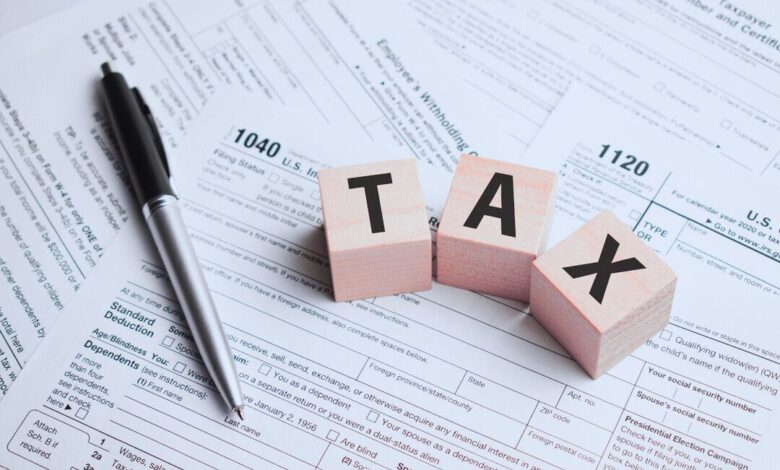Understanding the Tax Implications of Renting Out Your Property in Witham

For property owners in Witham considering letting their properties, understanding the tax implications is crucial for successful property investment. Property experts like letting agents in Witham say, the tax landscape for landlords has become increasingly complex in recent years, with various changes affecting how rental income is taxed and what expenses can be deducted.
Income Tax on Rental Properties
Rental income from properties in Witham must be declared to HMRC through your annual Self Assessment tax return. This income is added to your other earnings for the tax year and taxed at your marginal rate. For many landlords in Essex, where property values and rental yields tend to be healthy, understanding how rental income affects their tax bracket is particularly important.
The way rental income is calculated has changed significantly in recent years. While the rent you receive forms the basis of your taxable income, various expenses can affect your final tax bill. However, recent changes to tax relief on mortgage interest have made property investment less attractive for some higher-rate taxpayers in the area.
Allowable Expenses and Deductions
Understanding what expenses, you can deduct from your rental income is crucial for Witham landlords. Regular maintenance costs, insurance premiums, and property management fees are typically allowable expenses. Local service charges and ground rent payments, common in Witham’s newer developments, can also be deducted from your rental income before calculating tax.
However, the rules around improvements versus repairs need careful consideration. While replacing a broken boiler might be an allowable expense, installing a new, more efficient heating system could be considered an improvement, which isn’t immediately deductible but may affect your Capital Gains Tax position when you eventually sell the property.
The Impact of Mortgage Interest Changes
The phasing out of mortgage interest tax relief has significantly affected landlords in areas like Witham, where property prices often necessitate substantial mortgages. Instead of deducting mortgage interest payments from rental income, landlords now receive a basic rate tax credit of 20%. This change has particularly impacted higher-rate taxpayers, potentially making some rental properties less profitable than they were previously.
For Witham landlords with mortgaged properties, careful financial planning is now essential. Some have chosen to operate through limited companies, while others have restructured their portfolios or adjusted their rental prices to maintain profitability under the new tax regime.
Capital Gains Tax Considerations
When selling a rental property in Witham, Capital Gains Tax (CGT) becomes a significant consideration. The profit made from the sale will be subject to CGT, with rates depending on your income tax bracket. While the basic rate of CGT is 18% for residential property, higher-rate taxpayers face a 28% rate on property gains.
Understanding what can be deducted from your capital gain is crucial. Improvement costs, certain legal fees, and buying and selling costs can all reduce your taxable gain. For Witham properties that have seen significant appreciation, these deductions can make a substantial difference to your tax bill.
Stamp Duty Land Tax for Landlords
Investors purchasing additional properties in Witham face a higher rate of Stamp Duty Land Tax (SDLT), with a 3% surcharge above standard rates. Given Witham’s property prices, this additional cost needs careful consideration in investment planning. The surcharge applies even if your other property is elsewhere in the UK or abroad.
Local Council Tax Implications
Landlords in Witham need to understand their responsibilities regarding Council Tax. While occupied properties typically see tenants responsible for Council Tax, landlords may become liable during void periods. Understanding these obligations and factoring them into your financial planning is essential for successful property investment in the area.
Value Added Tax (VAT)
While residential property rental is generally exempt from VAT, some associated services might attract VAT charges. Property management fees, for example, typically include VAT. Landlords should consider these costs when calculating their potential returns from Witham properties.
Record Keeping and Compliance
Maintaining accurate records is crucial for Witham landlords. HMRC requires detailed records of rental income and expenses, and poor record-keeping can result in penalties. Given the complexity of property taxation, many local landlords work with accountants familiar with the Essex property market to ensure compliance and optimize their tax position.
Planning for Tax Efficiency
Strategic tax planning can significantly impact the profitability of your Witham rental property. This might include timing major repairs and improvements effectively, considering the structure of your property ownership, and planning for future disposal of the property. Regular reviews of your tax position and staying informed about local market conditions can help maximize your after-tax returns.
Conclusion
Managing the tax implications of rental property in Witham requires careful planning and ongoing attention to changing regulations. While the tax landscape has become more challenging for landlords in recent years, understanding your obligations and opportunities for tax efficiency can help maintain profitable property investments in this growing Essex market.
Success as a landlord in Witham depends not just on choosing the right property and finding good tenants, but also on managing your tax affairs effectively. Working with local property tax specialists and staying informed about changes in tax legislation can help ensure your property investment remains profitable while maintaining full compliance with all tax obligations.





